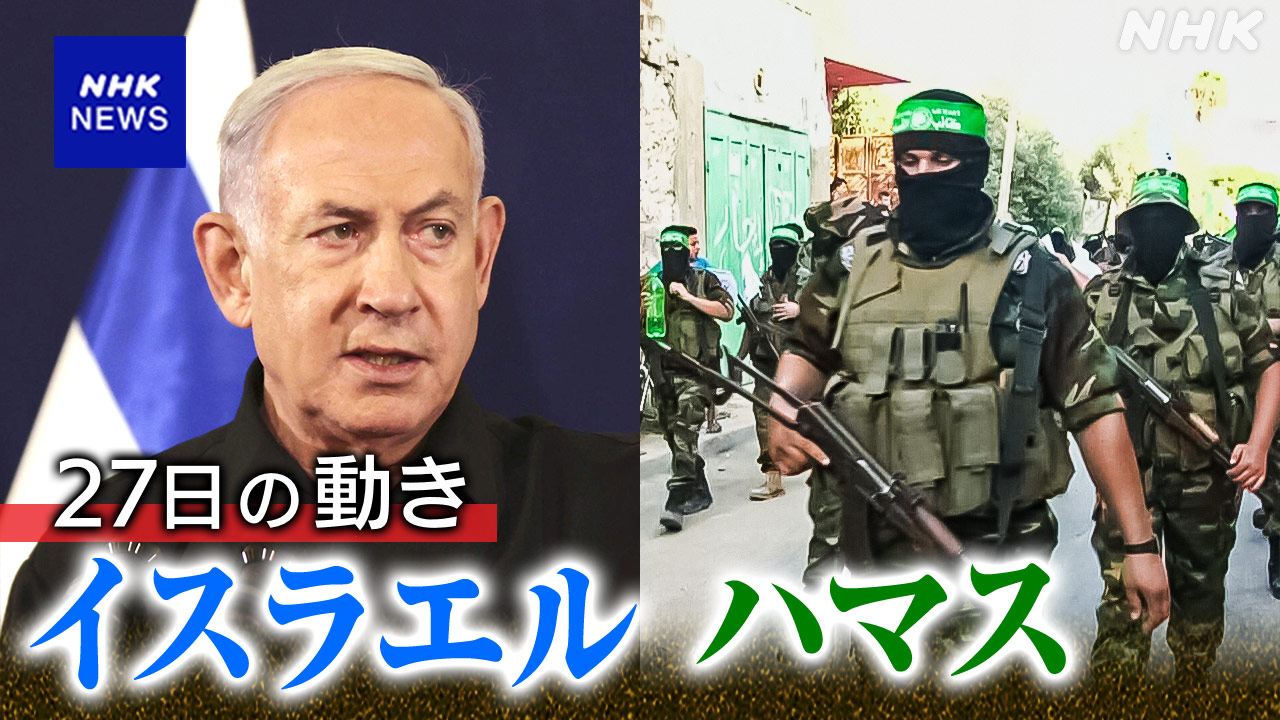On the 26th, U.S. Secretary of Defense Austin met with Israeli Defense Minister Gallant, who visited Washington, D.C., and expressed concerns about ground operations in Rafah in the southern Gaza Strip, and discussed alternatives for ground operations.
Meanwhile, the future of negotiations between Israel and the Islamic organization Hamas regarding a cessation of fighting remains unclear as the gap between the positions of both sides remains unfilled.
*We will update you on developments regarding Israel and Palestine as of March 27, Japan time.
U.S. Secretary of Defense talks with Israeli Defense Minister about alternatives to ground operations
On the 26th, U.S. Secretary of Defense Austin met with Israeli Defense Minister Gallant, who visited Washington, D.C., and expressed concern about the Israeli military's preparations for a ground operation in Rafah in the southern Gaza Strip, and discussed alternatives to the ground operation with the Israeli side. We discussed it.
Secretary of Defense Austin expressed concern about the situation in the Gaza Strip, saying, ``There are too many civilian casualties and too little humanitarian aid.''
Regarding the Israeli military's ground operations in southern Rafah, Secretary Austin said, ``The safety of the 1.5 million civilians in Rafah is a top priority for the United States. "We should not proceed without a plan," he said, adding that they had discussed plans to replace ground operations.
Defense Minister Gallant requested the cooperation of the United States, saying, ``We need to work hand in hand in military and diplomatic efforts, such as hostage release negotiations, to increase pressure on the Islamic organization Hamas.''
Hamas seeks complete cease-fire, rejects proposal from intermediary country; negotiations unclear
Negotiations between Israel and Hamas regarding a cessation of fighting and the release of hostages have been ongoing since March 18 in Qatar, the intermediary country.
Israeli media reported progress in the negotiations, including that Israel was coming to terms with Hamas' demands regarding the number of Palestinians to be released from prisons in conjunction with the release of the hostages.
Meanwhile, Hamas announced on the 25th that it had once again communicated to Qatar and other countries its previous position calling for a complete ceasefire and the withdrawal of Israeli forces from the Gaza Strip.
Multiple Israeli media have reported that Hamas has rejected proposals from Israel and mediating countries, and the Israeli Prime Minister's Office stated on the 26th, ``Hamas has once again rejected a compromise plan and is repeating extreme demands. "We will not comply with Hamas's delusional demands."
The future of the negotiations is becoming increasingly uncertain as the gap between the positions of both sides remains unbridgeable.
Top Hamas official meets with Iranian foreign minister, renewing stance of unity
On the 26th, Hamas's top official Haniyeh met with Iran's Foreign Minister Abdollahian, who supports Hamas, and discussed the situation in Gaza.
Amidst this, top official Haniyeh stated, ``We are at a historical and fateful turning point in our conflict with Israel,'' demonstrating once again our stance of unity with Iran and opposition to Israel. I did.
Palestinian Red Crescent Society operates Amal Hospital in Gaza Strip 'completely out of commission'
On the 26th, the Palestinian Red Crescent Society, which operates Amal Hospital, the main hospital in Khan Yunis in the southern Gaza Strip, where the Israeli military has been carrying out military operations, announced that it had "completely ceased functioning."
The reasons for the shutdown include the fact that the hospital had been under siege for more than 40 days, resulting in casualties from attacks, and that the Israeli military had forced hospital staff and injured people to evacuate and blocked the entrance to the hospital. .
On the 25th, Israeli forces say they killed more than 20 militants from the Islamic group Hamas near Amal Hospital.
The Palestinian Red Crescent said: "We regret that the international community was unable to provide the necessary protection to the hospital's staff, patients and those sheltering in place, resulting in the closure of Amal Hospital." is raising a voice of criticism.
In addition, health authorities in the Gaza Strip announced on the 26th that the Israeli military is intensifying the siege of Shifa Hospital, and the situation continues to be severe.
The World Health Organization (WHO) reports that as of March 20, of the 36 hospitals in the Gaza Strip, 3 are not functioning, and 12 are partially functioning, but there is a lack of supplies, etc. As the situation continues to be severe, we are calling for a ceasefire as soon as possible.

